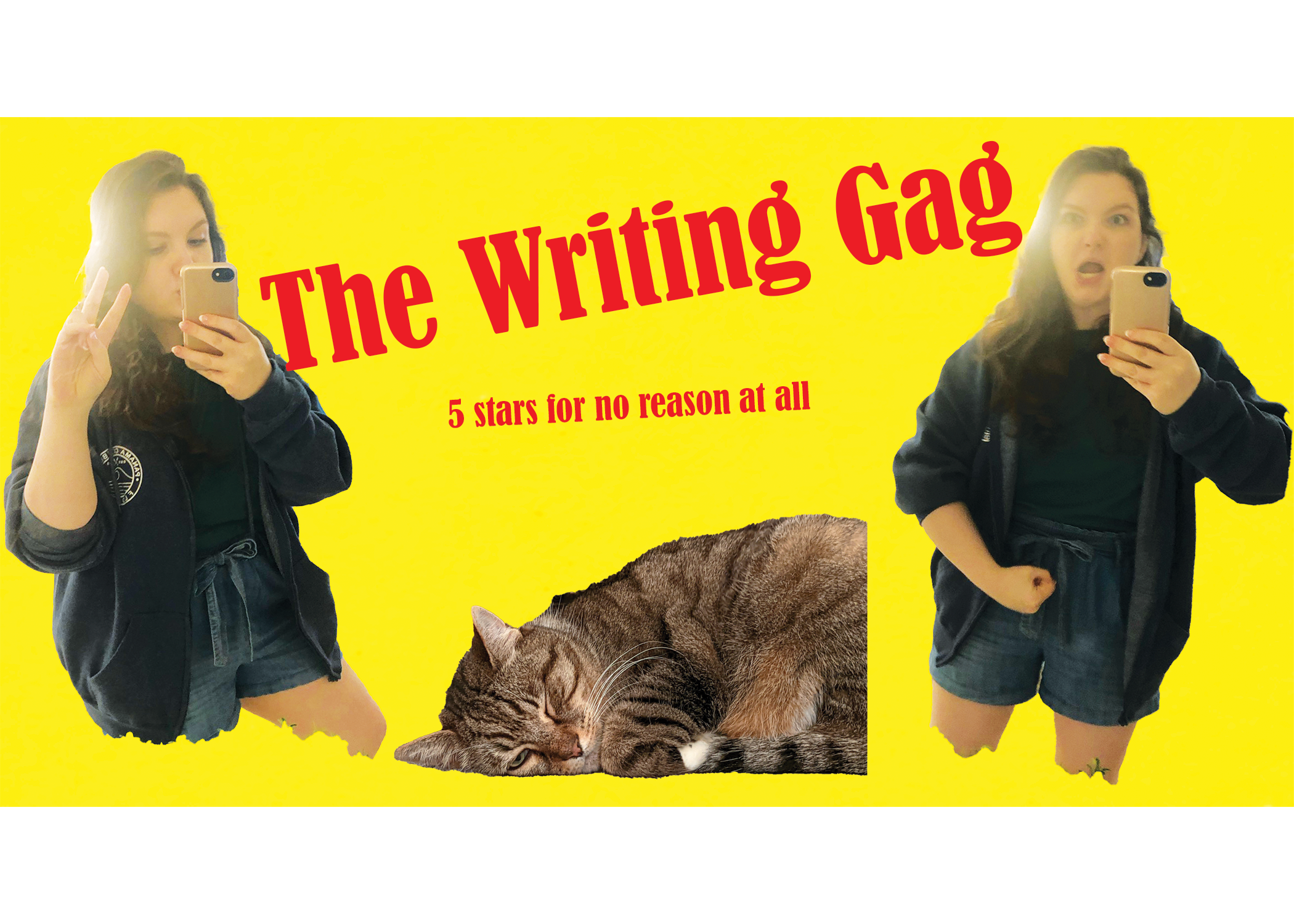The Best Editing Advice I Ever Got

The Best Editing Advice I Ever Got
The Best Editing Advice I Ever Got is pretty simple... and arduous. Time consuming. Mind melting. But very, VERY good!
My take on How to Edit Your Novel did not go well the first time. It was a lot of ranting. A LOT of ranting. So much so, that I might have discredited myself a touch in the grand scheme of things. Let’s rectify that right now.
Here you’ll learn
- Why You Should Edit Your Novel
- The Advice I got on How to Edit a novel
- How Many Times You Should Edit Before Making It Someone Else’s Problem
But first, let's start with a list and see how long it takes for my eyes to burst out of my skull.

There. Not quite a complete list. If I said everything I would rather do, my FBI agent might be more inclined to make a personal visit and it’s a bad time for me.
Why You Should Edit Your Novel
I come to you as a humbled woman who was taken down a peg or two in recent months. I had recently discovered the power of outlining and went into my novel completely illusioned that I wouldn’t need to edit it as much as if I had discovery written it. Now, I don’t like to think of myself as a haughty person because that would be too self-aware for my taste… But I was a little overconfident.
I wrote that book in 5 weeks.
Ran through it twice.
Sent it off to my peeps.
Got my feedback.
MADE NO CHANGES.
And then started querying.
Remember how I said you might look at your screen and scream “KATE YOU’RE AN IDIOT?” Well, honey bunny, here’s your chance.

This brings me to my long-winded point that editing is a must. No matter what, Everything needs to be edited.
Do you see those text messages you send on a whim and half of them have spelling mistakes?
Now, imagine you’re graced with your muse. Your hands are flying across the keyboard, you’re lost in your world and the arms of your characters, flying across the fantasy you’ve built . . . Do you think you’re going to be concerned that you used the word “just” eight times in a paragraph? What about the word “very”? Oh, oh, my favorite one. . . he looked. She looked. They looked. It stared. He stared. God all my books have everyone staring at everyone. It’s HORRIBLE. But editable.
This could stand along as the best editing advice I ever got, but let's delve into the rest.
How To Edit Your Novel
Many a person greater than me has tried to tackle this issue. Some say they have the cure. Some say their way is the only way. I say they’re all idiots. Editing is just as personal as writing… however, there might be some staple steps you want to hit.

1. Re-Writes
Once you’ve gained some emotional distance from your book, you can read it back and decide what needs to be re-written, added, and taken out. This is a great point to make sure all characters are needed, the scenes are playing out as you want, and each character is receiving their ‘need’ vs their ‘want’ in the story.
Notes: A character must have two things to be successful. Something they want and something they need. Better if these two things are pinned against each other.
Go Chapter By Chapter
Alex Finlay, the author of The Night Shift, has some amazing editing steps that are presented here and below. The first of those is the chapter-by-chapter route.
You want to go through each chapter of your book and ask four things:
- Does this scene tell me something about the character or does it move the plot forward?
- Does it start in the right place?
- Can I morph two characters together or does someone need to be killed off?
- How much exposition can I take out?
Every single scene needs to be moving your plot forward somehow. If the plot isn’t moving, then develop your characters and their relationships! But moving your plot forward with long paragraphs of exposition is boring and tiresome to the reader. Pick up the pace honey, we need to get to the point!

2. Get the Big Picture
Make a skeletal outline of every single chapter and make it fit on one page of paper (preferably all on the same side). This should be a one-line explanation with notation for what chapter and how many pages it goes on for.
Ex. “Ch.1; 70 pages; Adrian Wood Graduates from the Hunters full of rage and with the warning from her teacher to not let her anger cloud her judgment when she’s in the field.”
(Sneak Peek from my new series coming out in the next couple of years!)
Alex’s note was that If you have one chapter that’s 70 pages and the next chapter is 4, that could be a little jarring to people! … Yes, I’ll try to take that one to heart, Mr. Finlay but no promises. Is this the best editing advice I ever got? Probably, but I think I need to learn this lesson the hard way.
3. Make Setting List
This one is a little more unclear to me because I zoned out during this part of the conference. So what I’ll do is grab a little inspiration from a hella successful writer and teacher, David Farland.
In his course, The Story Puzzle, Dave suggests making a list of every single setting in your book.
There should be anywhere from 72 - 132 locations within your novel that don’t repeat. Now, technically this should be done at the beginning of your novel, but let’s not get caught up in the details.
Dave makes an excellent point that when people read multiple scenes in the same location in a book, it gets old pretty fast! So, when editing, we want to make sure we’re not in the MCs bedroom over 2 or 3 times in a given novel.

4. Make Timeline
This one up there with the number one best editing advice I ever got. Did your day extend forty-eight hours? Did you start on a Tuesday but your novel jumps to Friday in the next scene and you didn’t mean to?
Making a timeline is great for catching little inconsistencies. Even if it doesn’t matter what day it is, it matters what hour it is and if the sun or moon is out.
Make a timeline. Just do it.
5. Change Your View of Your Book
A big lesson in Self Editing for Fiction Writers: How to edit yourself into print is to change your view of your book. No, not metaphysically you impoverished philosophy major. Like literally.

6. Take Book One Line at a Time
Well, it’s the one-line time y’all. Sadly, you must take your book one line at a time. Separate it into chunks. Read the detail of each word and think about their implications, and if they make sense on their own. This would also be a good time to polish up some quotes for your marketing efforts! Make that punctuation look sexy y’all!
This is also the time to search for overused words that you just can’t help but use. I’m looking at you “He breathed, she breathed, they breathed,” or “Looked,” “Stared,” “just” or “Very.”

7. Show Don’t Tell
Knowing when to Show and Not tell is a feat that even I haven’t mastered yet. Unfortunately for us, we have to in order to be considered good writers. It’s a fine line. It’s not always better to Show. It’s not always better to tell. How am I working on this? Well, stay tuned for the Show Vs Tell article coming out soon!
But for this step, make sure you’re showing the emotions of your main characters. That’s the main rule I think… I know …. I’m certain. -Ish.
8. Look for -ly adverbs
These pesky little poops make their way into our writing no matter what it seems. Some are warranted and some aren’t. But at this stage, nearing the end of the road, let’s cut 95%.
9. Dialogue Tags
JUST SAY SAID PEOPLE is a line I heard thrown around quite a bit at my conference. Just say ‘said’? SAID?? What about belted? Hissed? Whispered? Or worse… giving actions like “he laughed,” or rolled their eyes, or tossed their head . . . I tell you what. When I read this part of The Self Editing Guide for Fiction Writers, I was HUMBLED to the FLOOR. I had a bubble of red growing through my cheeks so fast, I felt like I could dissolve into my couch.
“To use verbs like these (grimaced, smiled, chuckled) is to brand yourself as an amateur– and to stick your character with an action that is physically impossible.” - Self Editing Guide for Fiction Writers (Second Edition)
Sweet Lord. I felt like I was being hanged.

Point though?
*Thank God Kate*
Yeah, yeah, the point is that “Said” is a great tool. Readers gloss over it. They barely notice it all and it’s almost always the right choice. Also keep in mind that if you’re relying on frilly dialogue tags, you might not have strong writing at the beginning of the sentence. Top five best editing advice I ever got... maybe even top 1!
Strong writing would indicate whether the character was whispering or yelling or hissing or whatnot. Now, this isn’t possible every time. But most of the time? Let’s all look for contextual evidence of whispers, chants, and yells.
How Many Times Should I Edit Before Letting Beta Readers Read?
The best advice I got on editing my novel was that I should make as many passes as I can before I stop being objective. For some, that’s when they become repulsed by their novel and can’t fathom reading another word. For others, it’s when they’re so in love they can’t imagine it being a more perfect novel. The latter was me. Ugh, I know. FOR SHAME.
Whew. That was exhausting. Especially for you, If you’ve gone through all of this work. I know this is my routine for the next few months as I get my WIP ready to send to an agent.
CAUSE GET WHO GOT A MANUSCRIPT REQUEST?

Don’t get excited, I’ve got a lot of trials to go through before I make my way in the publishing world. But honey, I’m excited to get started.
Here are some resources that I want to share with you for editing! I don’t get any money for the recommendations but I’m hoping soon, I will!
Resources:
Rewriting to Greatness - My Story Doctor by David Farland (Course)
Aight. Get writing and stay saucy!
Xoxo - Kate




I really enjoyed reading your editing advice. Congratulations to a fellow Writers of the Future Honorable Mentionee. I'm looking forward to reading more of your stuff. By the way, you said, "CAUSE GET WHO GOT A MANUSCRIPT REQUEST?" I'm assuming you meant "guess." Congrats!
Thank you! And yes, I think the excitement got to me when I was typing. If there’s any article topics you’d like to read just let me know!